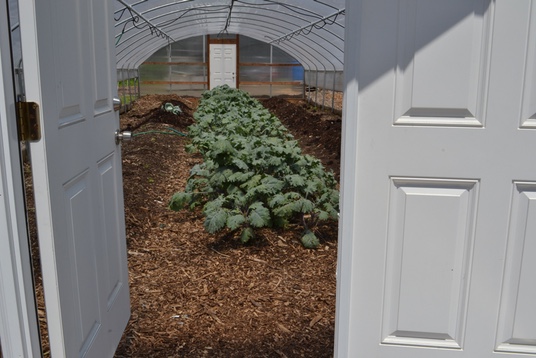
Thu 4/19-Fri 4/20 @ 5-9PM
In terms of sustainability, the urban farming movement is gaining attention and momentum nationwide. However, with this trend has cropped up the discussion of food justice — specifically, social justice within the food system as it relates to nutrition, health, community activism, treatment of low-income residents and minorities.
Out of this conversation came the creation of “Race, Food, and Justice Conference: Analyzing the Urban Food Movement through a Social Justice Lens,” which takes place Thu 4/19 and Fri 4/20 and 20 in Case Western Reserve University’s Strosacker Auditorium.
The fourth annual affair, which is presented by Environmental Health Watch, Rid-All Green Partnership Farm and the Social Justice Institute of Case Western Reserve University, features policy makers, nonprofit organizations, local students and community residents engaging in an ongoing dialog that addresses history, policy, organizing, race and racism, how these factors contribute to liberation and root causes of health disparities manifested within our community.
CoolCleveland talked to Environmental Health Watch executive director Kim Foreman about the issues and upcoming event, which is held biennially.
CoolCleveland: How did “Race, Food, and Justice Conference: Analyzing the Urban Food Movement through a Social Justice Lens” get off the ground?
Kim Foreman: “Race, Food & Justice” actually started in 2013. We had a book signing for [urban farmer and author] Will Allen at Case. It was a really good turnout, so we solidified the partnership with Environmental Health Watch, Rid-All Green Partnership and Social Justice Institute because they were just coming online. Next I went to a race workshop in Chicago with Will Allen’s daughter. She asked the group what they were going to do. I said maybe we’ll have a conference.
CC: How was the first conference?
KF: We really wanted to bring about a perspective with social justice in the forefront. We wanted to think about race and racism as a social determiner to health and how it impacts on food, food access and people in communities that are really dealing with real issues related to food. A lot of conversation was just maybe about how growing food is fun and it’s healthy for folks. It’s not really digging into real history and historical perspective of those who might be poor and how they might see this as not so much of as an opportunity, but struggling with this food apartheid, which Dara Cooper named. With all of these sprinklings in conversations that were happening, we thought we would tie it together with people we knew who were experts in the field, who were African-Americans coming from that perspective, talking about the history of using the food movement for justice work and things like that.
CC: How has the conference evolved?
KF: This year 90 percent of the people attending are new. I think that’s a result of us putting this out there in a different way, a different perspective especially around the history of food and growing food and the cooperatives. This year we want to talk a little bit about economic justice and how people can pull their resources to survive and work together. Speaking will be Dr. Monica White (University of Madison-Wisconsin), who says this is not a new concept. People of color have been doing this for a long time and sometimes the narrative almost sounds like it’s a new discovery. So it’s like let’s look at our history as it relates to cooperative food justice, economic justice and how social justice has been interrelated.
CC: What kind of issues are you hearing about from residents?
KF: When I did have conversations with people in that community, dumping came up. The residents said, “If you’re growing food and they’re dumping over there, I don’t know if that’s safe for me.” Those are the types of things sometimes we don’t really capture. We’re talking about the food movement and talking about people that actually live in the communities that are suffering from not having access.
CC: Finally, what do you hope people take away from this year’s “Race, Food, and Justice Conference: Analyzing the Urban Food Movement through a Social Justice Lens?”
KF: I think the economic justice aspect, co-operative economics, history of farming, the social justice, food justice movement and an understanding around community development. I’m hoping people see that and they want to work with us and want us to succeed in whatever we’re doing here around food justice in Cleveland.
All conference events are free and open to the community. Registration is available at case.edu/socialjustice.